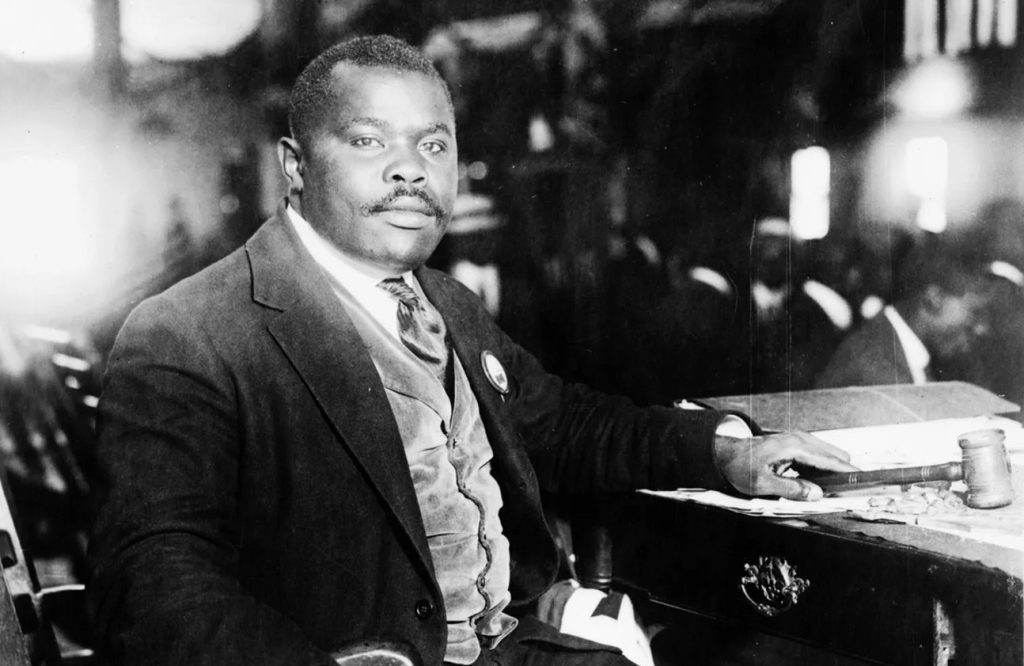He galvanized Black pride!
Today and every day, we reflect on the legacy of Marcus Mosiah Garvey Jr.—a Pan-African leader whose vision and activism continue to inspire generations. Born in 1887 in St. Ann’s Bay, Jamaica, Garvey became one of the most influential figures in the global Black liberation movement, History.com reports. His unwavering belief in self-determination, economic empowerment, and African unity laid the foundation for modern Pan-Africanism.
Garvey recalled first encountering racism while in elementary school, sparking his lifelong activism. He attended school in his home of Jamaica before moving to London where he studied law and philosophy at the University of London’s Birbeck College. There, Garvey made a name for himself, working for a Pan-Africanism newspaper and leading regular discourse and debates about equitable rights.
But his most notable achievement came with the establishment of the Universal Negro Improvement Association (UNIA), an organization dedicated to fostering Black pride, economic independence, and social uplift. Under his leadership, the UNIA grew into an international movement with millions of followers across the African diaspora. His message was clear: Black people must unite, uplift one another, and build institutions that serve their own communities.
“The first dying that is to be done by the Black man in the future will be done to make himself free,” Garvey once told a crowd of supporters.
Under the UNIA, Garvey gave lectures, uniting the diaspora through regular travels between the states and back home. He corresponded with Booker T. Washington and embarked on one of many lecture tours while living in New York. While in the states, he penned the “Declaration of Rights of the Negro Peoples of the World,” ratifying it at the 1920 UNIA convention at Madison Square Garden, where he was elected “Provisional President” of Africa.
Garvey would continue to expand the mission of the UNIA, embarking on several projects, including his most ambitious, the Black Star Line, a steamship company aimed at facilitating trade and travel between Africa and the Americas. Though the venture faced many challenges, it symbolized a bold step toward economic sovereignty for Black people worldwide. But his work became a target of the FBI under J. Edgar Hoover, who hired the first Black FBI agent in 1919 just to spy on Garvey. Eventually, he brought fraudulent charges of mail fraud that landed Garvey in prison for 3 years.
“After my enemies are satisfied in life or death I shall come back to you to serve even as I have served before. In life I shall be the same; in death I shall be a terror to the foes of Negro liberty,” wrote Garvey in “First Message to the Negroes of the World from Atlanta Prison.”
Though he faced political persecution and was eventually deported from the United States, Garvey’s impact remains undeniable. He continued his work abroad, speaking to the League of Nations in Switzerland on issues of race and justice and establishing the People’s Political Party in Jamaica, which focused on workers’ rights and the poor. Despite his death in 1940 at the age of 52, Garvey’s philosophy of racial pride and self-reliance profoundly influenced future civil rights leaders, including Malcolm X and Dr. Martin Luther King Jr. His famous words, “Up, you mighty race, accomplish what you will,” continue to serve as a rallying cry for those committed to Black empowerment and liberation.
Today, his teachings continue to inspire movements advocating for social justice, economic independence, and Pan-African unity. Earlier this year, more than 100 years after Garvey’s unjust conviction, he was granted a full Presidential pardon by Joe Biden. Marcus Garvey taught us that we can stand tall in our history, embrace our culture, and continue striving for a future rooted in empowerment and self-determination. His legacy lives on in every effort to uplift Black communities across the globe.
Cover photo: Remembering Marcus Garvey, the Civil Rights Activist Who Championed the Pan-African Movement/Marcus Garvey chairing a session of the Universal Negro Improvement Association, 1924/Photo credit: Bain Collection/Library of Congress

